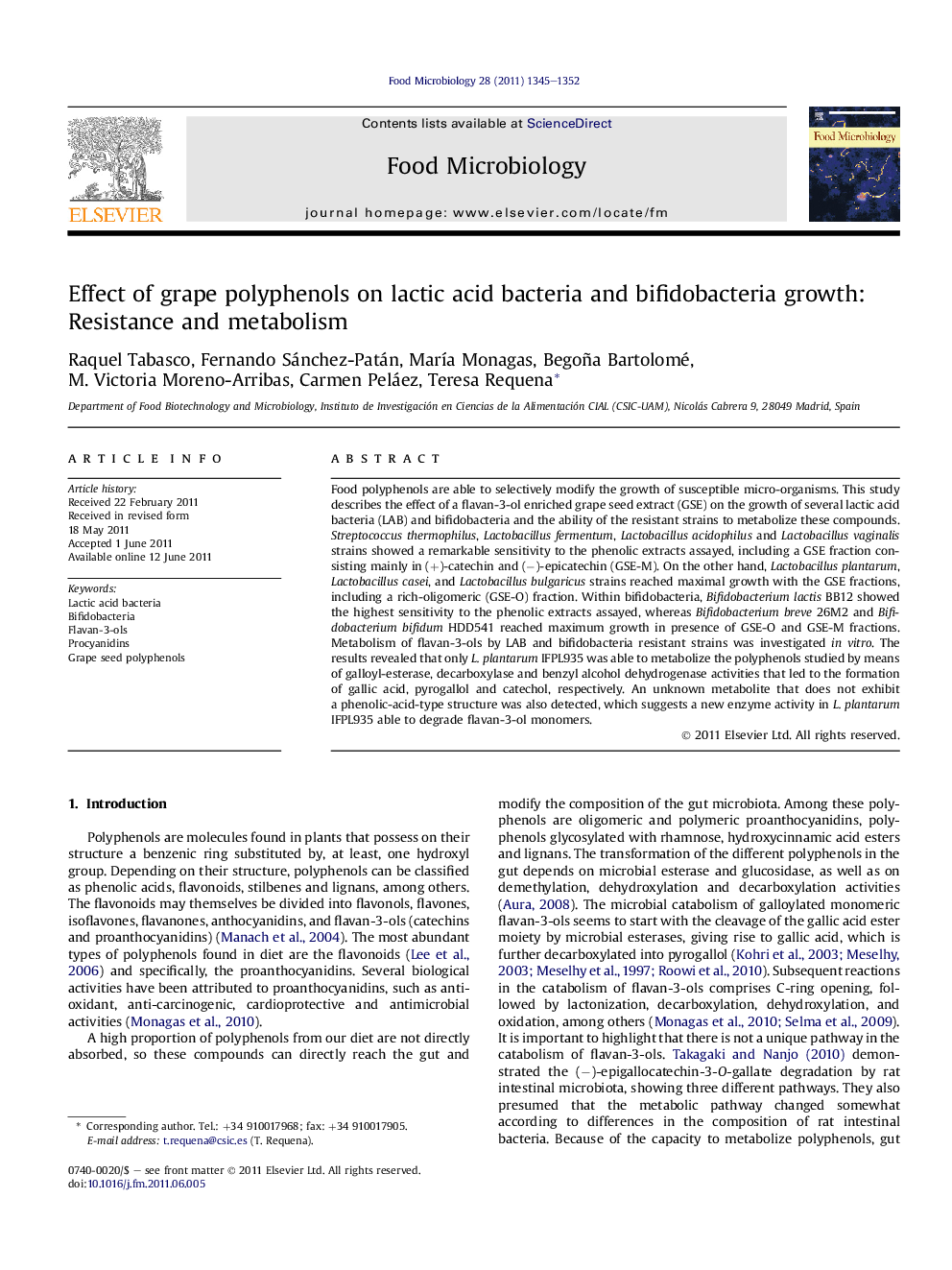| Article ID | Journal | Published Year | Pages | File Type |
|---|---|---|---|---|
| 6289035 | Food Microbiology | 2011 | 8 Pages |
Food polyphenols are able to selectively modify the growth of susceptible micro-organisms. This study describes the effect of a flavan-3-ol enriched grape seed extract (GSE) on the growth of several lactic acid bacteria (LAB) and bifidobacteria and the ability of the resistant strains to metabolize these compounds. Streptococcus thermophilus, Lactobacillus fermentum, Lactobacillus acidophilus and Lactobacillus vaginalis strains showed a remarkable sensitivity to the phenolic extracts assayed, including a GSE fraction consisting mainly in (+)-catechin and (â)-epicatechin (GSE-M). On the other hand, Lactobacillus plantarum, Lactobacillus casei, and Lactobacillus bulgaricus strains reached maximal growth with the GSE fractions, including a rich-oligomeric (GSE-O) fraction. Within bifidobacteria, Bifidobacterium lactis BB12 showed the highest sensitivity to the phenolic extracts assayed, whereas Bifidobacterium breve 26M2 and Bifidobacterium bifidum HDD541 reached maximum growth in presence of GSE-O and GSE-M fractions. Metabolism of flavan-3-ols by LAB and bifidobacteria resistant strains was investigated in vitro. The results revealed that only L. plantarum IFPL935 was able to metabolize the polyphenols studied by means of galloyl-esterase, decarboxylase and benzyl alcohol dehydrogenase activities that led to the formation of gallic acid, pyrogallol and catechol, respectively. An unknown metabolite that does not exhibit a phenolic-acid-type structure was also detected, which suggests a new enzyme activity in L. plantarum IFPL935 able to degrade flavan-3-ol monomers.
⺠Flavan-3-ols are inhibitory of lactic acid bacteria and bifidobacteria growth depending on the concentration and composition. ⺠Resistance of L. plantarum to flavan-3-ols is related to bacteria metabolism. ⺠L. plantarum IFPL935 is able to metabolize galloylated procyanidins in a complex extract. ⺠L. plantarum IFPL935 possess a new enzyme activity which degrades flavan-3-ol monomers to non-phenolic-acid-type compounds.
